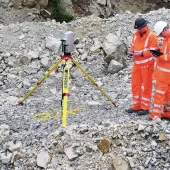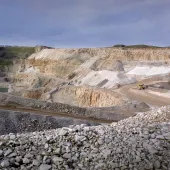MPA responds to UK steel industry debate

Association calls for action to support other energy-intensive industries such as cement and lime
THE Mineral Products Association (MPA) says the current steel crisis has highlighted the strategic importance of key energy-intensive industries to the UK and the need for action to be taken to ensure competitiveness with other European and global suppliers.
It says that while the challenges of the steel industry are understandably the immediate focus of government, policy-makers in both the UK and Europe need to be aware that many energy-intensive sectors share the same policy-induced pressure which undermines their competitiveness.
According to the MPA, the UK cement and lime industries are being severely hampered by policy-induced costs, either directly or indirectly. It says indirect policy costs are making energy costs uncompetitive and the Government’s record on compensation against these costs is patchy and inconsistent.
The most significant direct regulatory threat to domestic cement and lime production and investment is associated with the future design of the EU Emissions Trading Scheme and recent UK government proposals for this scheme would damage local production of cement and lime, says the Association.
While government is recognizing the importance of its policy decisions for the steel industry, the MPA says it is essential for the future competitiveness of cement and lime production, and the local communities within which these industries operate, that immediate positive action is taken to support not only the steel industry but other key UK industries that are vulnerable to policy-imposed costs.
Dr Pal Chana, executive director of the MPA, commented: ‘The welcome support being provided to the UK steel sector should now be extended to other energy-intensive industries, including the cement and lime sectors, which face similar challenges of carbon and energy costs.
‘The most immediate need is to ensure that the EU Emissions Trading System reforms planned for post-2020 are structured in a way that supports rather than damages these essential industries.’









